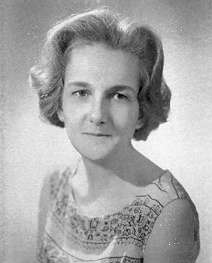Rossana Rossanda
Rossana Rossanda (born 23 April 1924) is an Italian left-wing politician, journalist, and feminist.[1][2]
Rossana Rossanda | |
|---|---|
 Rossana Rossanda in 1963. | |
| Member of the Chamber of Deputies | |
| In office 16 May 1963 – 4 June 1968 | |
| Personal details | |
| Born | 23 April 1924 Pula, Kingdom of Italy (now Croatia) |
| Nationality | Italian |
| Political party | PCI (1948-1974) PUPC (1974-1984) |
| Occupation | Journalist, politician |
Biography
Rossanda was born in Pula (Croatia), then part of Italy. She studied in Milan and was a pupil of philosopher Antonio Banfi. At a very young age, she took part in the Italian resistance and, after the end of World War II, she entered the Italian Communist Party (PCI). After a short period, secretary Palmiro Togliatti named her responsible of culture in the party. She was elected for the first time in the Italian Chamber of Deputies in 1963.
In 1968 she published a small essay, entitled L'anno degli studenti ("The Year of the students"), in which she declared her support to the youth movement. Rossanda was part of a minority inside PCI that was against the Soviet Union, and, together with Luigi Pintor, Valentino Parlato and Lucio Magri founded the party and newspaper il manifesto.[3] This caused her expulsion from the Communist Party after its XII National Congress held in Bologna.
At the 1972 elections, Il Manifesto obtained only 0.8% of the votes. It therefore merged with the Proletarian Unity Party, forming the Proletarian Unity Party for Communism. She later abandoned party politics but kept her role as director of il manifesto.
Selected works
- L'anno degli studenti (1968)
- Über die Dialektik von Kontinuität und Bruch (1975)
- Le altre. Conversazioni sulle parole della politica (1979)
- “A Splendid Life”. Telos 44 (Summer 1980)
- Un viaggio inutile (1981)
- Appuntamenti di fine secolo (1995)
- La vita breve (Pratiche, 1996)
- Note a margine (1996)
- La ragazza del secolo scorso (2005, finalist for the Premio Strega 2006).
References
- Kaplan, Gisela (2012). Contemporary Western European Feminism. Routledge. p. 270.
- Berninghausen, David K. (2002). Italian Feminist Theory and Practice: Equality and Sexual Difference. Fairleigh Dickinson University Press. pp. 59–60.
- Vidal, Dominique (December 2014). "Buying back 'il manifesto'". Le Monde diplomatique. Retrieved 30 November 2014.